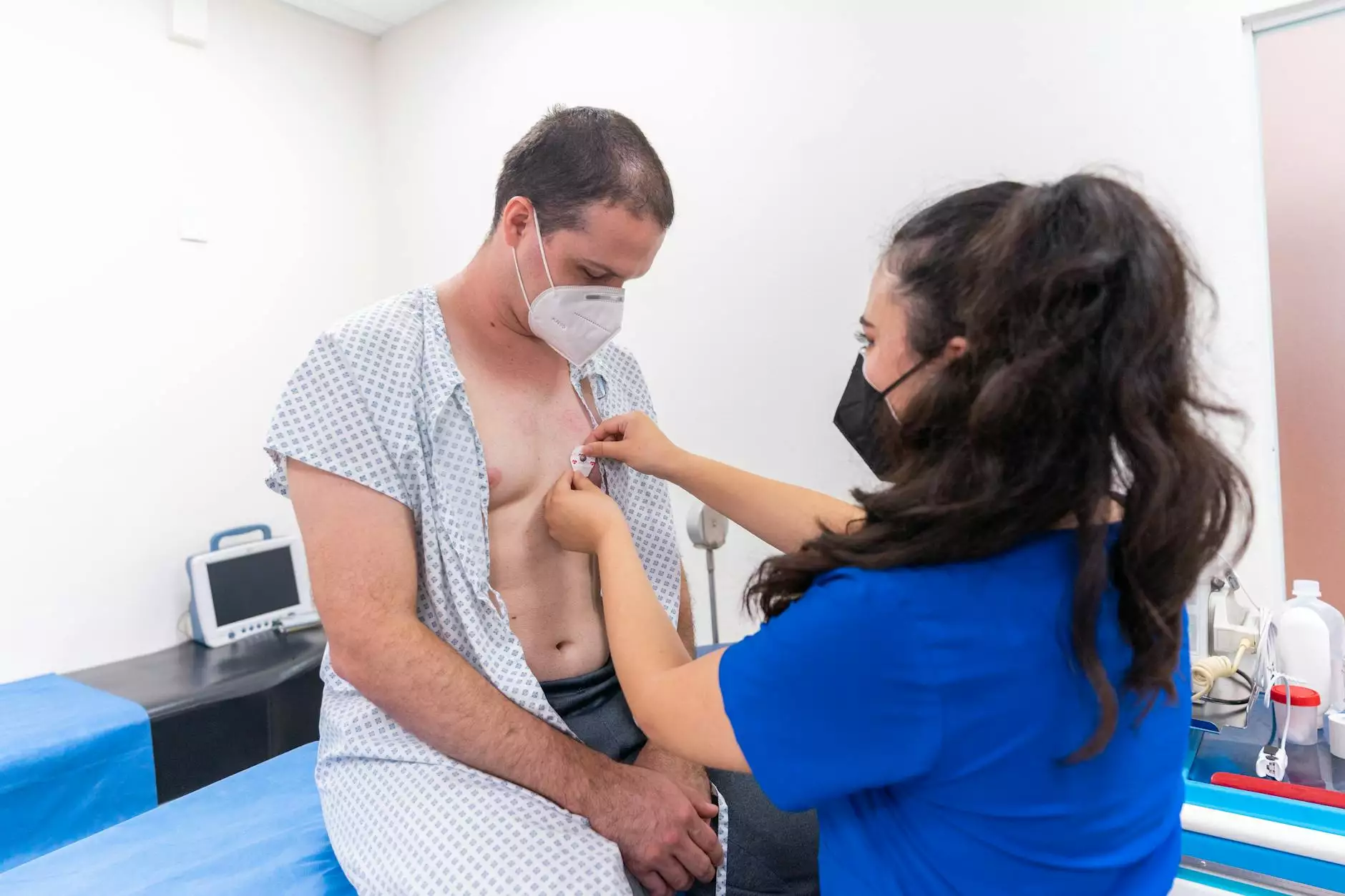Finding the Right Heart Specialist Near Me

When it comes to your health, particularly your heart health, finding a heart specialist near you is crucial. Heart disease remains one of the leading causes of death globally, making it imperative to seek the guidance of a qualified cardiologist. In this comprehensive article, we dive into the steps you can take to find a specialist, the types of heart conditions they treat, and why cardiology is essential for maintaining overall health.
Understanding the Importance of Cardiovascular Health
The significance of cardiovascular health cannot be overstated. Your heart pumps blood throughout your body, delivering oxygen and nutrients that your organs need to function. Poor heart health can lead to various issues, such as:
- Heart Attacks - A blockage of blood flow to the heart muscle.
- Stroke - A lack of blood flow to the brain.
- High Blood Pressure - Elevated pressure in the arteries, which can damage blood vessels and organs.
- Heart Disease - Includes various heart conditions, especially those related to blood vessels.
Hence, regular check-ups with a heart specialist are essential to prevent and manage these conditions.
What Does a Heart Specialist Do?
A heart specialist, or cardiologist, is a doctor who specializes in diagnosing and treating conditions related to the heart and blood vessels. Here are some of the key responsibilities and services offered by cardiologists:
- Diagnostic Testing - They perform tests such as echocardiograms, stress tests, and ECGs to assess heart health.
- Managing Heart Conditions - They treat conditions such as coronary artery disease, heart rhythm disorders, and heart failure.
- Heart Procedures - Some cardiologists can perform minimally invasive procedures like angioplasty or stent placements.
- Preventive Care - They provide guidance on lifestyle changes, medications, and monitoring strategies to maintain heart health.
How to Find a Heart Specialist Near Me
Finding a heart specialist near you can be a straightforward process if you follow these steps:
- Consult Your Primary Care Provider - Your doctor can recommend trusted cardiologists based on your medical history.
- Research Online - Use search engines and healthcare websites, such as mediglobus.com, to find local cardiologists.
- Check Credentials - Ensure the specialist is board-certified and has experience in treating your specific condition.
- Read Reviews - Look for patient reviews and testimonials to gauge the quality of care provided by the cardiologist.
- Consider Logistics - Check the location, availability, and whether the cardiologist accepts your insurance plan.
Top Questions to Ask When Choosing a Heart Specialist
When selecting a heart specialist, it's important to make sure they meet your needs. Here are some key questions to consider:
- What is your experience with my specific heart condition?
- What treatment options do you offer?
- How do you approach preventive care?
- Will I need any follow-up appointments, and how often?
- Are you affiliated with any hospitals or medical centers?
Signs You Need to See a Heart Specialist
Recognizing when to seek help from a heart specialist is vital. You should consider making an appointment if you experience:
- Chest Pain or Discomfort - A common symptom that should not be ignored.
- Nausea or Shortness of Breath - These symptoms may occur during physical activity or at rest.
- Irregular Heartbeat - Palpitations or sensations of skipping beats can indicate underlying issues.
- Extreme Fatigue - Unexplained tiredness, especially during physical activity, requires evaluation.
- Swelling in Legs or Ankles - This may indicate heart failure or other cardiovascular issues.
How Technology is Transforming Cardiology
The field of cardiology has seen significant advancements thanks to technology. Here are some innovations that are making a difference:
- Telemedicine - Virtual consultations enable patients to connect with heart specialists from the comfort of their homes.
- Wearable Devices - Fitness trackers can monitor heart rates and alert users to potential arrhythmias.
- Artificial Intelligence - AI aids in interpreting complex data from diagnostic tests, leading to quicker and more accurate diagnoses.
- Minimally Invasive Procedures - Advances in surgical techniques reduce recovery times and the risk of complications.
Common Heart Conditions and Their Treatments
Understanding common heart conditions will help you communicate effectively with your heart specialist. Here are a few you might encounter:
Coronary Artery Disease (CAD)
CAD is caused by the build-up of plaque in the coronary arteries, which can lead to heart attacks. Treatment options include lifestyle changes, medication, and procedures such as angioplasty.
Heart Failure
This condition occurs when the heart cannot pump enough blood to meet the body's needs. Treatments often involve medications, lifestyle adjustments, and in severe cases, surgery or implantable devices.
Atrial Fibrillation (AFib)
AFib is an irregular heartbeat that can increase the risk of stroke. Treatment may include medications, electrical cardioversion, or catheter ablation.
Heart Valve Disorders
These conditions involve malfunctioning heart valves. Treatment can include medication or surgical procedures such as valve repair or replacement.
Conclusion: Invest in Your Heart Health Today
Your heart is your lifeline. Seeking the right heart specialist near you is a critical step towards maintaining your cardiovascular health. By following the guidance in this article and staying proactive about your heart health, you can take control of your wellness journey. Remember, early diagnosis and treatment can significantly alter your prognosis and improve your quality of life. Don't hesitate to reach out to a trusted heart specialist to discuss your concerns and take the first step toward a healthier heart.
For more information and to find qualified heart specialists, visit mediglobus.com.



